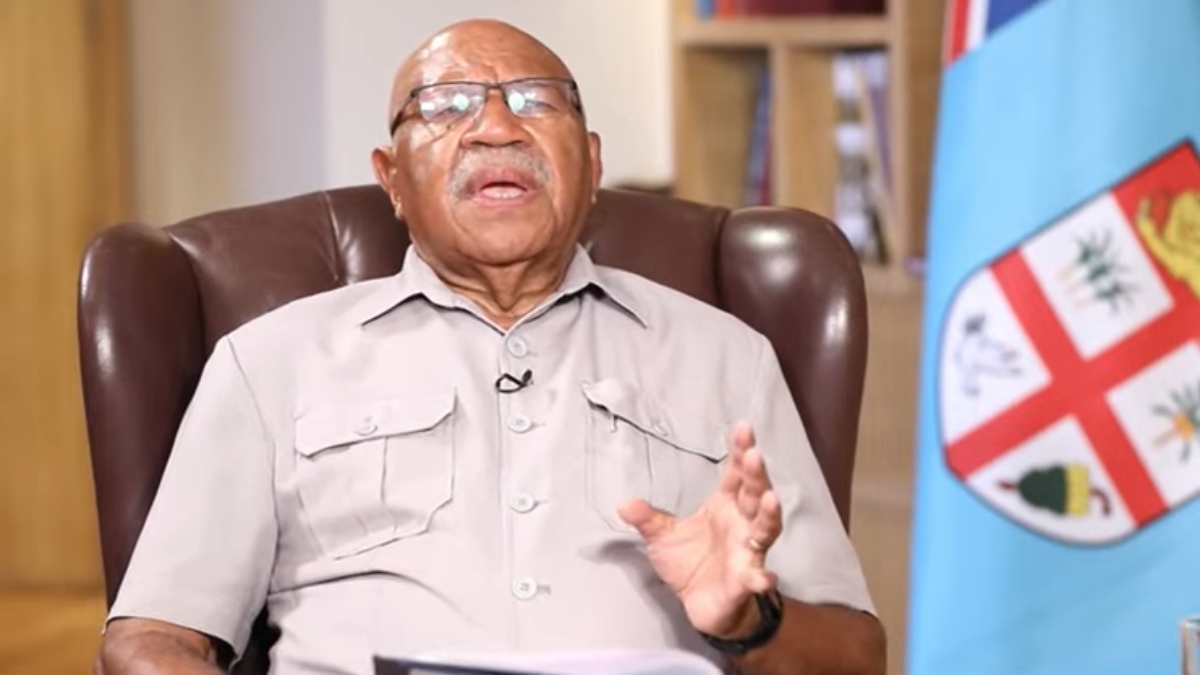Fiji Prime Minister Sitiveni Rabuka on Tuesday praised Prime Minister Narendra Modi for positioning India as the voice of the Global South, calling him “a great statesman” whose priorities resonate deeply with the aspirations of developing nations, especially in the Pacific.
In an interview with Firstpost Managing Editor Palki Sharma, Rabuka said, “He (Modi) is a great statesman. His priorities for India are the very same priorities that any aspiring leader, especially those of the Global South and the smaller nations of the Pacific, should champion. Like President Xi Jinping of China, he is determined to eradicate poverty, and I believe such practical lessons should be the focus for all Global South leaders.”
“I thank Prime Minister Modi for the example he has set, and under his leadership, India is projecting itself as the voice of the Global South,” he added.
When asked whether Fiji and other small island nations feel marginalised among global power rivalries, Rabuka said “we do not feel sidelined or silenced.”
“The same issues discussed by other Global South leaders are our issues as well. Our problems are reflected and echoed on the world stage thanks to leaders like Prime Minister Modi. We have fair representation — they are our champions, and we are theirs,” he added.
Reflecting on his visit to India, Rabuka described the deepening ties as “the biggest takeaway” of his trip.
“Relationships are paramount in leadership. For a small island nation like Fiji to receive such national honours in India is significant. I come as a representative of the Pacific island nations and will soon return there for the Pacific Islands Leaders’ Forum, where we will further promote the Pacific as a ‘Zone of Peace’— a concept supported by Prime Minister Modi and other world leaders since I returned to office in December 2022,” he said.
Addressing defence ties, Rabuka underscored their importance to Fiji’s vision of the Pacific as a “Zone of Peace.”
“We wish to maintain stability and ask that larger powers do not draw Pacific nations into their conflicts through coercion. I hope the concept of peace will be embraced by Pacific Island leaders, maintaining collaboration and social cohesion among the peoples of the Pacific, who are one people despite different nationalities and are still very tribal,” Rabuka said.
When asked about Fiji’s call for Pacific nations to reject the expansion of outside militaries and support from the fellow leaders on the issue, Rabuka said, “We’re not calling on China or others not to expand, but wish for the Pacific to be self-reliant so we don’t have to depend on external powers for our security.”
On India’s increasing military engagement in Fiji, Rabuka acknowledged the long history of naval interactions between the two nations and highlighted India’s growing global influence.
“India has a long-standing history of sending naval ships to Fiji, dating back to colonial times. It brings no displeasure from China or anyone else. India is influential globally, not just through hardware but through its voice as a global leader. They are not yet a permanent member of the UN Security Council, but their recognition is increasing,” he added.
On the prospect of greater military cooperation with India to uphold a rules-based order, the prime minister said forging lasting partnerships remains his preference.
“We have a history of cooperation with India in wartime and peacekeeping, and there is no reason to abandon that in favour of anyone else,” he said.
Rabuka also discussed the historic ties between the two countries, recalling the arrival of Indian indentured laborers in 1879.
“The relationship began in 1879, when indentured labourers were brought to Fiji to help establish our sugar industry. This was a collective effort between the British government, Indian leadership and Fiji during imperial times. Many arrivals did not know where they were bound, but today we celebrate their sacrifices and contributions,” said the Fijian Prime Minister.
“This has helped our economic strength and social fabric in the Pacific; Fiji is highly multi-ethnic and multi-racial, which has made us stronger as a nation. The Fijian diaspora of Indian origin might now be close to 50%, with many having taken citizenship elsewhere, though many return to Fiji,” he added.
Rabuka is currently on a three-day official visit to India, his first since taking office.
Upon arriving in Delhi on Sunday, he engaged in high-level talks with Prime Minister Narendra Modi, where both leaders committed to strengthening defence cooperation across key areas including peacekeeping, cybersecurity, and maritime surveillance.
Accompanied by a senior delegation featuring Health Minister Ratu Atonio Lalabalavu and other top officials, Rabuka’s visit signals a renewed emphasis on the deep and enduring ties between India and Fiji.
A statement from India’s government on Thursday underscored the visit’s significance, noting that it “reaffirms the continued commitment of both countries to further strengthen the bilateral relationship across all sectors and deepen our close people-to-people ties.”
With inputs from agencies
End of Article

)

